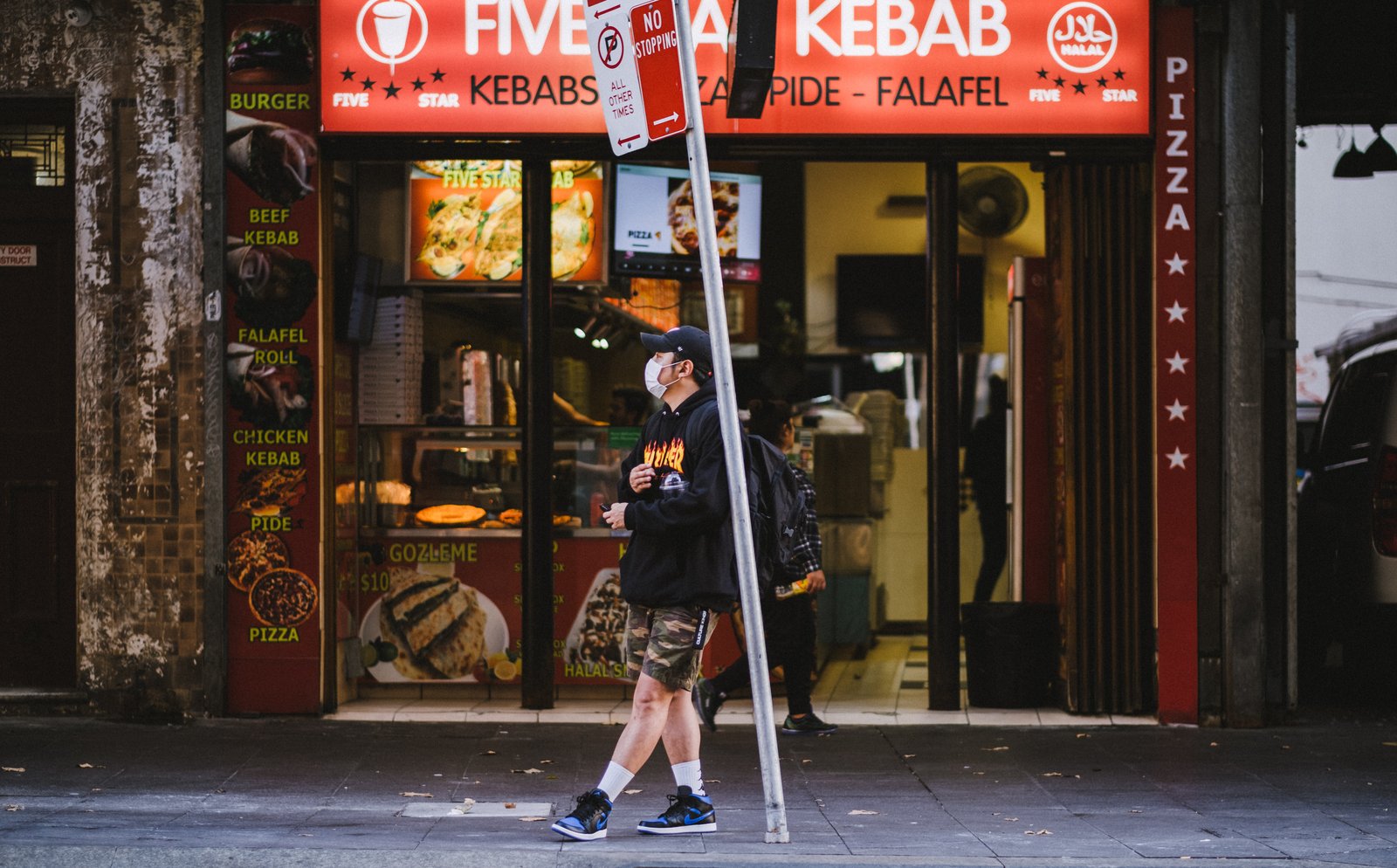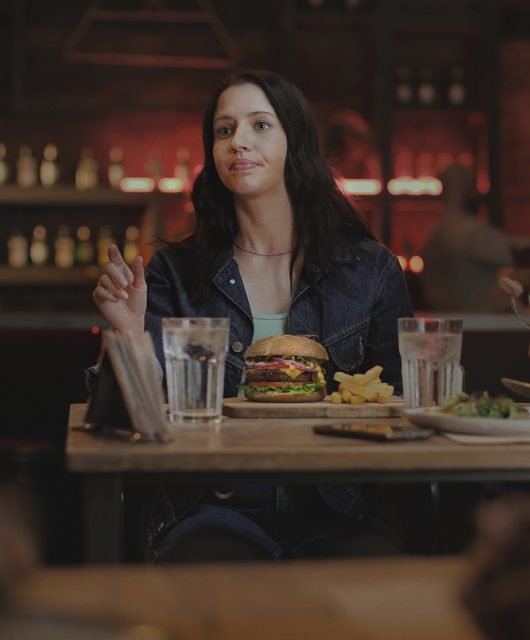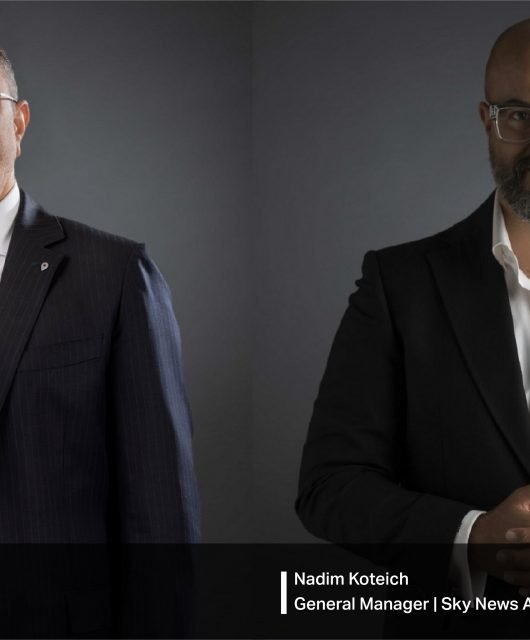Week: May 4th – 8th
by Interbrand
The latest of Interbrand’s regular round-ups of brands’ responses to the global COVID-19 pandemic

Technology
The gaming industry has seen a massive spike in business – the industry had its biggest March in over 10 years; sales of game consoles, games, accessories and game cards topped $1.6 billion, according to The NPD Group’s monthly report. “Gaming right now, globally, is having a moment,” commented Microsoft Xbox head Phil Spencer.
“Gaming is a social and community connection for many people, and as physical distancing is requiring that people are physically apart, the social connections and community connections that the games industry brings to people are expanding. We track what we call ‘new to Xbox customers,’ – people that we’re seeing for the first time, and we’re seeing a big flood of new people come into gaming.”
Business connectivity platform Okta has released its latest monthly report on apps and usage and found, to nobody’s great surprise, that between February and March, far more users adopted new functionality than usual.
“We see growth in two major areas: collaboration tools, especially video conferencing apps, and network security tools such as VPNs that extend secure access to remote workers,” said the report. Zoom was the fastest growing app with 110% growth in unique workforce users in March over February 2020. (For comparison, Zoom grew only 6% during that same time period in 2019.) RingCentral ranked at #6 with 39% growth, and Cisco Webex took #7 with 37% growth.
News from US network providers. After promising 60 days without data caps and overage fees for all customers, Comcast has decided to extend the data-cap waiver until at least June 30th “to help ensure students can finish out the school year from home and remain connected to the Internet during the COVID-19 crisis.” Also extended to June 30th is Comcast’s promise not to disconnect Internet, mobile, or home phone service and to waive late fees if customers “contact us and let us know that they can’t pay their bills during this period.”
Verizon has also extended a pledge to keep customers connected through June 30th. “This means we will neither terminate service nor charge late fees to our postpaid wireless, residential, and small business customers that notify us of their inability to pay their bills due to disruptions caused by the coronavirus pandemic,” Verizon said. Customers must contact Verizon to avoid losing service if they can’t pay their bills. Verizon also said last week that it’s giving wireless customers an extra 15GB of data in May. AT&T has announced it will continue to waive overage charges for postpaid wireless customers until June 30th, but didn’t say whether it will extend the cap-waiver for home Internet service. Like Verizon, AT&T has extended its no-disconnection pledge until June 30th.
Google is opening up its Google Meet videoconferencing service to anybody who wants to use it, instead of just offering it to enterprise and education customers via G Suite. The company says anybody with a Google account will now be able to create free meetings of up to 100 people that can last any amount of time, though after September 30th it may restrict meeting length to 60 minutes. Users won’t be able to just click a link and join a meeting; they’ll need to be logged in so meetings can be better controlled by their hosts. Meet is also to be integrated into Gmail.
WhatsApp has launched an eight-person group video chat feature, up from the previous four participants. The company reports that over the last month, people on average spent over 15 billion minutes talking daily on WhatsApp calls. To utilize the new higher participant limit, users need to update to the latest version of WhatsApp.
Several brands have been taking advantage of the rise of Zoom video conference calls. DoorDash, Behr and Pandora have all debuted backgrounds for the popular app, while Burger King’s “Home of the Billboards” campaign encourages fans to download one of the billboard images from Burger King’s Twitter account, use it as a Zoom background during your virtual meetings, upload a photo on Twitter and tag the brand. The brand will then directly message you with a free sandwich code to be redeemed on Burger King’s app. The brand has been particularly active in promotion.
Manufacturing & Retail
CVS Health and UPS’s Flight Forward drone service are joining forces to fly prescription drugs to residents of a Florida retirement community. In the initial stages of the pilot program, slated for early May, the drone will land merchandise at a designated pickup location near the facility. A UPS vehicle will then make the pickup and complete the last stage of the delivery to the customer’s residence. All deliveries will be sourced from a CVS store close to the retirement community – the flight distance will be under half a mile. The community, The Villages near the city of Orlando, is home to over 135,000 residents.
Shopify, best known for powering the online stores of more than 1 million businesses, is launching a consumer shopping app of its own today, simply called Shop. The app is actually an update and rebrand of Arrive, an app for tracking packages from Shopify merchants and other retailers, which the company says has been used by 16 million consumers already. Shop includes those same package tracking capabilities, but it also allows consumers to browse a feed of recommended products, learn more about each brand and make purchases using the one-click Shop Pay checkout process.
Finance
The coronavirus pandemic could permanently change how many bankers make the daily trip into packed city centre offices, Barclays bank CEO Jes Staley said. The bank, which like companies worldwide has seen the majority of its staff work from home or backup sites, will not revert fully to its pre-January working habits. “There will be a long-term adjustment in how we think about our location strategy – the notion of putting 7,000 people in a building may be a thing of the past,” Staley said. Staff including investment bankers could, said the CEO, work instead from branches as well as other locations.
Fashion & Luxury
Famous central London upmarket department store Selfridges has announced that its Food Hall is reopening to serve the local community. They’ll also be making it easy for key workers in central London to shop there with NHS, health and social care workers given free use of the store’s carpark, a dedicated entrance and fast track check out. Customers will be able to stock up on fresh produce from the greengrocer, bakery, butcher and fishmonger plus, for the first time, food boxes and make-your-own kits including Bake- Your-Own Bread, Make-your-own Pizza Kit and At-Home-Pasta Kit. Selfridges will also be selling a range of household and pharmacy items. There will be a limit to the number of customers in store at any one time, a one-way shopping system to help maintain social distancing and hand sanitiser stations. Any leftovers at the end of the day will be donated to several charities.
French luxury brand Hermès’ Guangzhou flagship store reportedly achieved $2.7 million in sales when it reopened this weekend. This is believed to be the biggest daily figure for a single boutique in China and offers hope to luxury brands and retailers of what economic recovery may look like in the coming months. Guangzhou is the capital of Guangdong province, China’s most affluent region. This position makes it an interesting testing ground for how consumer behavior for high-end customers will change when stay-at-home orders lift. French brands LVMH and L’Oréal said earlier this month that a recovery could start soon after the coronavirus caused sales to plunge in the first quarter, as revenue in China is already bouncing back. L’Oréal CEO Jean-Paul Agon said that sales in China – the world’s biggest market for luxury goods – turned positive in March and were on track for a gain of 5% to 10% in April.
Travel & Hospitality
As working remotely has become the new normal, hospitality group Global Hotel Alliance has begun to pivot to meet the demand for non-home workspaces – a kind of WeWork for executives. Their California-based Meritage brand is offering what they call ‘Office Zen’ at its Huntington Beach Paséa Hotel and Spa – an oceanfront workspace available 7am-7pm with highspeed wi-fi, two-line speakerphone and complimentary coffee and tea. Combined with the resort’s rigorous distancing, cleaning and sanitising policy, as lockdowns lift this may prove popular with executives who want somewhere more professional than home, but have abandoned the idea of traditional office life.
In an unusual and innovative tourism campaign by Visit Faroe Islands, the destination marketing organization of the autonomous Danish territory located between Iceland, Scotland and Norway, people from all over the world have been logging on to a dedicated microsite to watch a local guide traverse the scenic islands via a livestreaming camera attached to her hat. They can also join the queue to ‘remote control’ the explorer – commanding her with a virtual controller to run, jump, turn left or right, continue forwards or turn backwards. The “Remote Tourism” campaign is a smart way to keep the picturesque, if remote islands, in travellers’ minds as a post-lockdown destination.
Airbnb has announced a new Enhanced Cleaning Initiative, which includes the first overarching standardized protocol for cleaning and sanitization in the home sharing industry. In May, they will launch the new Cleaning Protocol, with enhanced procedures and guidance on how to clean every room in a home; guests will be able to identify and book accommodations included in this program soon after hosts enroll. The Protocol will include specific information on COVID-19 prevention, such as the use of personal protective equipment, like masks and gloves for hosts or their cleaners, as well as disinfectants that are approved by regulatory authorities. A CDC recommended 24 hour wait period before entering is also required, as a precaution to address the possibility of particles that may remain airborne for a few hours. If hosts are unable to commit to the Cleaning Protocol, they can opt into a new feature called Booking Buffer, to create a vacancy period between stays. Hosts can commit to keeping their home empty for a set period in between stays, with no activity other than cleaning. Reservations will be automatically blocked during that time frame, currently set at 72 hours.
Marketing & Advertising
The top 10 ad spenders in the world (according to RECMA data from 2018) are adapting their marketing strategies to the ongoing crisis. Here’s an analysis from Digiday:
1. The world’s largest consumer goods maker, Procter & Gamble – and the biggest advertiser – increased marketing spending by nearly 2% in the first quarter. The company’s organic sales were up 7% in the first quarter, its best sales growth in a decade. “There’s big upside here in terms of reminding consumers of the benefits that they’ve experienced with our brands and how they’ve served their and their families’ needs, which is why it’s not time to go off air,” said P&G CFO Jon Moeller.
2. Unilever’s sales performance was flat for the first quarter – analysts had expected 2.1% growth. While consumers did stock up on its household cleaners like Dove, Axe and Knorr, Unilever felt the hit in its food and ice cream divisions. Plus, much of its business is in emerging markets, where stockpiling hasn’t been as much of a phenomenon. Unilever withdrew its growth and margin outlook for the year, owing to uncertainty around the severity and length of the pandemic. It’s maintaining its level of marketing investment, however. Chief Executive Alan Jope said that it has halted any new major ad productions that were in the works, reviewing ad spending to take advantage of cheaper ad rates and “dialing up areas with strong ROI.”
3. L’Oréal’s first-quarter sales dropped 4.8% as hair salons and other retailers were forced to close. A bright spot was skincare sales, which rose 13%. The Maybelline maker said trends from China, its largest business, looked positive for a rebound in beauty sales elsewhere. L’Oreal said it was “already seeing an encouraging recovery in beauty product consumption” after lockdown rules began to be relaxed in the country — though mask wearing does hit lipstick use. CEO Jean Paul Agon described the current situation as a supply crisis, not a demand crisis, and that the impact should be temporary. E-commerce and digital have become a core focus as L’Oréal focuses its marketing activity to meet the needs of new at-home beauty trends.
4. Renault Nissan Mitsubishi Alliance is cutting back, as the French manufacturer Renault’s sales slumped 19% in the first quarter while dealerships shut and consumer demand for cars has dropped. Japan-based Nissan said last week it expects to post its first annual loss since 2009, the last financial crisis. In March, its global sales plummeted 43% from the previous year. Mitsubishi has not yet provided a financial update for the coronavirus period. Renault “reduced advertisement[s] as much as we can in the last part of the quarter; we are going to do the same in Q2,” said Clotilde Delbos, acting CEO and CFO at Groupe Renault. “Nevertheless, we do hope the activity is going to restart.”
5. Amazon’s revenue soared in the first quarter as consumers quickly shifted to shopping online. But conversely, while revenue rose 26%, profit dropped 29% from a year ago; costs rose as the company raced to fulfil the surge in orders. Amazon said it expects to record an operating loss of $1.5 billion or profit of $1.5 billion in the second quarter. The company reported $3.1 billion in operating income in the second quarter of 2019. Marketing expenses increased 32% on the year-ago quarter to $4.8 billion. However, the company said it had been lowering marketing in some areas as a way to dampen consumer demand for non-essential items.
6. Coca-Cola has been severely impacted by the closure of bars, restaurants, movie theaters and stadiums, and people aren’t making impulse purchases of soda from convenience outlets. Net sales fell 1% in the three months to the end of March, versus a year ago. Coca-Cola said that April sales volumes had slumped by 25%. The brand warned advertising vendors in March that “from April and until further notice we’re putting commercial advertising for Coca-Cola and all our brands on hold.” “We have determined that in this initial phase there is limited effectiveness in broad-based brand marketing,” said Coca-Cola CEO James Quince. “We have reduced our direct consumer communication, paused sizeable marketing campaigns and will reengage when the timing is right.”
7. Pharmaceuticals giant Glaxosmithkline had a strong first quarter, posting a 19% rise in sales that beat analysts’ expectations. GSK is also working to develop Covid-19 vaccines. However, the company said it expects a 1% to 4% drop in profit this year. The drugmaker said consumer consumption levels in China were beginning to return to pre-coronavirus levels — plus it had experienced some supply chain and manufacturing challenges. Chief executive Emma Walmsley said “our goal is to invest behind our new launches” and that “the investment into digital is ongoing.”
8. Like other car manufacturers, the pandemic has substantially impacted Volkswagen’s business. Revenue dropped 8.3% in the first quarter. Chief finance officer Frank Witter predicted the second quarter will be the worst of the year and that 2020 sales will be “significantly” below last year. “This involves stringently reducing costs further and cutting budgets drastically in all areas like external consultancy and marketing.”
9. McDonald’s has been forced to close many of its restaurants around the world and service has been restricted in locations that are still open. Many customers are also skipping takeaway burgers and breakfasts. Sales fell 6% in the quarter to March 31st, while profit dropped by 17%. But McDonald’s is still spending. Late last month, the fast food chain launched a U.S. campaign airing on national television promoting free meals for first responders. CEO Chris Kempczinski said that value will be an important focus of future marketing campaigns, judging by trends from China, where footfall hasn’t immediately sprung back to normal levels. “Each market is rebuilding their marketing calendar to reflect these learnings and many others, so we can reignite our business momentum,” he said.
10. NBCUniversal/Comcast’s broadband division marked an uptick in signups, but it can’t open its theme parks, TV and film productions are on hold and NBCUniversal and its recently-purchased Sky TV business can’t broadcast any live sports. The company also expects advertising revenue to be down significantly in the second quarter. Overall, Comcast’s revenue was down 0.9% in the first quarter. NBCUniversal began rolling out its new ad-supported Peacock streaming service in April to Comcast customers, earlier than initially planned. The national launch is set for July, but without many of the shows it had initially planned to offer, due to the production issues. In the first quarter, Comcast’s overall advertising marketing and promotion costs rose 2.6% versus the year-ago quarter to $1.94 billion.
To read the full report, please download here.
To access daily Brand Moves, please visit www.brandchannel.com





